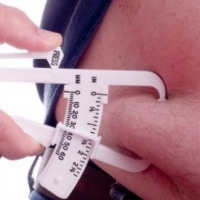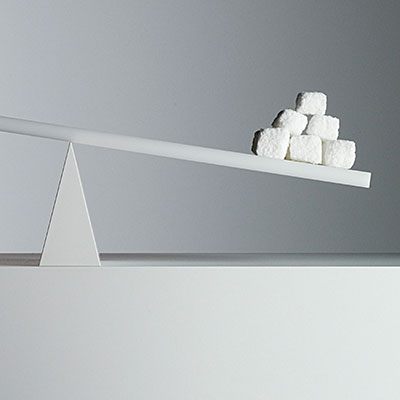10 Easy Weight Loss Tips
1) Since you wish to lose weight, your target = BMR - 500 kcal Work out your BMR basal metabolic rate - this is to define how many calories your body will require per day. By having too many calories you will simply put on weight, having less than you require will help you to lose weight. Body weight (lb) x 15 + (moderate activity [mins/pday] x 3.5) as you want to lose weight then your target = BMR-500 kcal.
2) Fruit for breakfast - Try eating fruit for breakfast! Fresh fruit - apples, grapefruit, strawberries, cherries, oranges, kiwi, melon, and grapes all count. In fact, any fruit works - and there are so many to choose from. Eating fruit for breakfast will get you on the road to having a healthier body right away. Fruit in its raw form is full of vitamins and minerals and will give you lots of energy and also it is low in calories.
3) Eat slowly - When we eat slowly, the process of chewing and mixing foods in our mouth with saliva is the first step in digestion. The more we chew our foods, the less work is needed to digest them. For people who are constantly experiencing bloating, stomach pain or heartburn after eating, they are eating too fast and are causing indigestion. The other benefit of eating slowly is to prevent over eating. By eating slowing, we allow the stomach to signal the brain when we have eaten enough before we have eaten too much. For people who want to eat less, eating slowly is most effective.
4) Regular exercise - For the best results, add exercise to your plan. Regular exercise not only expends energy as you're doing it, but can also lead to increases in your basal metabolic rate, so you'll burn more Calories even at rest. High-intensity exercises burn the most Calories, but don't select exercises solely on their fat-burning potential. Instead, pick exercises (i.e. sports activities) that you enjoy, and want to incorporate into your daily routine.
5) Portion size - You can lose weight and still eat your favorite foods! Just decrease your portion sizes by half. For example, if you are used to eating a whole baguette or sub sandwich at lunch, just eat half and supplement your meal with raw veggies on the side and finish of with some fresh fruit. Then wait to see if you're still hungry. If you pause after eating the first half and allow yourself a few minutes to feel satiated, you just may find you're too full to eat the other half anyway.
6) Natural foods - natural foods are so much better than processed foods as they contain more goodness in the way of vitamins and minerals, they are lower in fat and do not contain any hidden harmful additives such as preservatives and pesticides. A lot of processed foods contain a lot of hidden sugars which will make you put on weight.
7) Indulgence - Don't feel guilty about giving yourself a treat from time to time, just make sure you keep an eye on the quantity and frequency of it. If you deny yourself any treats then you are more likely to relapse into your old unhealthy ways.
8) Watch out for sugary drinks - many fruit drinks contain hidden added sugars. Juices, pop, cream and sugar in your coffee or tea all add up. Opt for drinking at least 8 glasses of water a day. In addition to providing hydration to your body, it will also help you feel full.
9) Keep a journal - Keeping a food journal helps you pin point your eating pattern and will enable you to easily modify it. If possible, have your Registered Dietitian review your journal.
10) Do not skip meals - Eating small frequent meals help to balance your calorie intake throughout the day and also keeps your blood sugar level balanced. Instead of eating 3 big meals, try to eat 5 - 6 smaller meals throughout the day. If you cut back and miss too many meals your body will go into a starvation mode and subsequently hang onto its fat stores.
Related Articles
-
Add Green Tea To Your Diet For Increased Fat Burning
Increase fat burning by adding green tea to your diet. If you are cons
-
Erectile Dysfunction can be controlled by modest weight loss!
Research has proved that more than 75% of men having Diabetes also exp
-
6 Pack Abs Diet For Women
6 Pack abs diet for women : The Truth About Abs is the number one sell
-
Losing Stubborn Stomach Fat
Losing stubborn stomach fat is probably the har
-
Rapid Fat Loss Metabolic Surge Can Add Muscle
There have been several people who have experienced rapid weight loss
-
Losing Weight And Keeping It Off
Eating Healthier A major part of any weight loss
- DON'T MISS
- Atkins Diet Phase 1 Food List
- Effective Weight Loss is Required to Track Calories on a Daily Basis
- Lose Weight And Gain Muscle
- What Struggles Our Fat Loss Program?
- Do Natural Weight Gainer Pills For Men Work
- Weight Loss - Basic Things You Need To Know
- Top Two Diet Mistakes People Usually Make When Trying to Lose Weight
- What Is The Difference Between Infrared Sauna Treatments And Traditional Saunas?
- XENICAL is use for weight reduction and weight maintenance
- Low Calorie Diet Meal Plans




